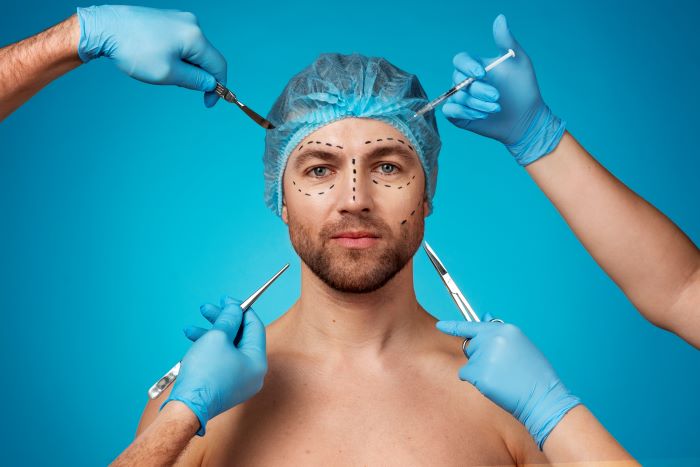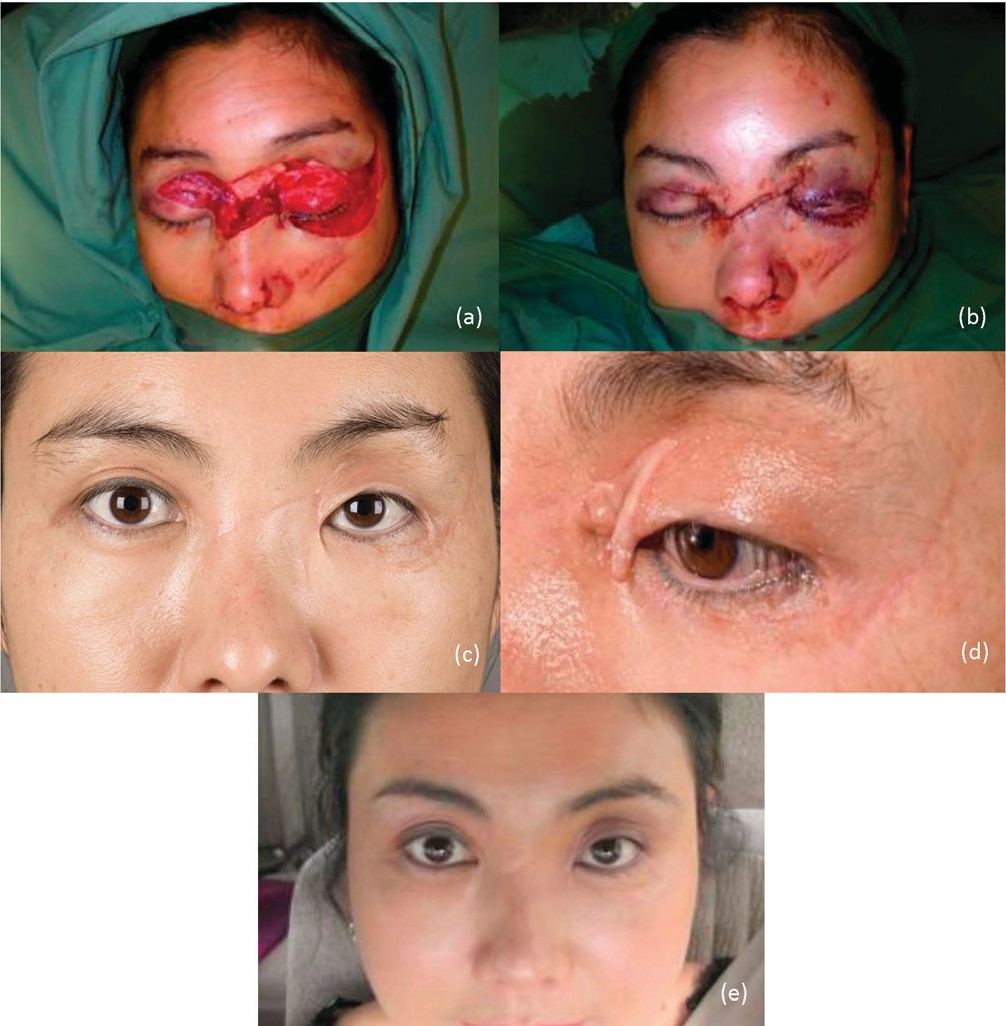Examining the Mental and Social Elements That Drive People to Take Into Consideration Plastic Surgery as a way of Renovation
The decision to seek cosmetic surgery commonly prolongs past plain visual appeals, linking with social and psychological characteristics that merit thorough exam. Aspects such as self-worth, pervasive societal elegance criteria, and the prevalent impact of social networks merge to form individual inspirations for surgical enhancement. As these influences become increasingly noticeable, understanding the underlying psychological and cultural contexts is essential. What remains to be discovered is the profound effect these variables have not just on individuality but also on more comprehensive societal norms and worths bordering charm and approval.
The Role of Self-worth
Self-esteem dramatically affects an individual's decision to pursue cosmetic surgery. Individuals with low self-confidence usually regard themselves in a negative light, leading to feelings of inadequacy regarding their physical appearance.

Ultimately, the function of self-confidence in the decision-making process relating to cosmetic surgical procedure highlights the complicated interplay between body image, personal fulfillment, and mental health and wellness. Understanding this relationship is essential for healthcare professionals to make certain that clients are making notified decisions rooted in realistic expectations and emotional well-being.
Social Beauty Criteria
Influenced by pervasive media representations and social narratives, societal charm criteria play a vital function fit people' perceptions of their own bodies. These standards are typically identified by an idyllic form of charm that emphasizes traits such as slimness, youthfulness, and proportion. As these perfects are continued with different channels, including film, television, and advertising and marketing, people often internalize these messages, leading to frustration with their all-natural appearance.
The ramifications of these societal norms prolong beyond visual choices; they can affect self-worth, psychological health, and interpersonal relationships. People that regard themselves as falling brief of these requirements may experience sensations of inadequacy, prompting a wish for cosmetic surgery as a means of achieving social approval. This quest is frequently fueled by the idea that complying with these suitables will certainly boost not only physical look however also social standing and individual fulfillment.

Influence of Social Media
The influence of social beauty criteria is further enhanced by the rise of social media sites systems, where curated images and idyllic representations of appeal are common. Individuals are continuously revealed to filteringed system and modified photos, which usually show unattainable physical attributes. This direct exposure cultivates a society of comparison, leading individuals to evaluate their very own look versus these usually impractical criteria.
Social media site influencers and celebs frequently advertise aesthetic treatments, stabilizing the notion that medical improvements are a sensible means for attaining social ideals (plastic surgery rancho cucamonga). The presence of these improvements can create an assumption that going through plastic surgery is a standard technique, thus influencing individuals to consider similar interventions as a pathway to enhanced self-worth and social acceptance
Moreover, the interactive nature of social media enables prompt comments through likes and remarks, better reinforcing the need to comply with preferred charm criteria. Such communications can aggravate Check Out Your URL feelings of inadequacy and drive people towards cosmetic surgery as a way of obtaining recognition. Eventually, social media sites plays an essential role fit assumptions of elegance, which considerably affects the decision-making procedures bordering cosmetic surgery.

Cultural Perspectives on Appearance
Across various societies, perceptions of look are deeply rooted in historical, social, and economic contexts, forming individuals' views on charm and value. In many cultures, look functions as a significant pen of identity, influencing social status, expert possibilities, and personal relationships. For example, in some cultures, light skin is typically related to wide range and privilege, while others might glorify darker skin tones as icons of strength and credibility.
Moreover, standard appeal criteria are typically perpetuated with cultural narratives, media representations, and family members affects, leading to differing perfects across various regions (plastic surgery rancho cucamonga). In Western cultures, the emphasis on young people and physical conditioning frequently drives people towards cosmetic enhancement, while in certain Eastern cultures, even more refined adjustments lined up with traditional appearances may be chosen
Globalization and the spreading of electronic media have further complicated these dynamics, producing a hybridization of appeal ideals that goes beyond geographical boundaries. As people progressively browse these cultural stories, the stress to comply with particular appearance requirements can lead to the need for Learn More Here plastic surgery, mirroring a complicated interaction of personal desires and social worths. Recognizing these cultural point of views is vital in attending to the motivations behind cosmetic surgical procedure considerations.
Emotional Impacts of Plastic Surgery
Many people seeking plastic surgery record experiencing profound emotional effects that can dramatically change their self-perception and emotional well-being - plastic surgery rancho cucamonga. The wish for physical enhancement usually stems from underlying issues such as reduced self-worth, body dysmorphic disorder, or social pressures pertaining to charm requirements. For some, the immediate post-operative stage can lead to a temporary increase in self-confidence and satisfaction with their appearance, promoting a sense of empowerment
Nevertheless, these favorable feelings may not be withstanding. Research study shows that while some clients experience improved self-esteem, others might encounter intense anxiousness or anxiety if their expectations are not met. This inconsistency can occur from impractical suitables bolstered by media depiction and cultural narratives bordering charm.
Additionally, the mental implications of cosmetic surgical procedure prolong past the person. Relationships with friends and family might be strained as social characteristics change, bring about sensations of seclusion or alienation. Inevitably, the emotional effects of cosmetic surgical procedure are multifaceted and intricate, calling for cautious consideration by both prospective patients and medical care carriers to make certain enlightened decision-making and realistic expectations.
Verdict
Finally, the choice to go after cosmetic surgical treatment is substantially influenced by a combination of self-esteem concerns, societal beauty requirements, and cultural viewpoints on look. The pervasive reach of social networks better exacerbates these pressures, advertising unrealistic suitables that people commonly aim to attain. Understanding these social and emotional variables is important for resolving the motivations behind cosmetic surgery, highlighting the need for an extra nuanced discussion bordering charm and self-acceptance in contemporary culture.
The choice to pursue cosmetic surgery commonly expands beyond mere aesthetics, intertwining with psychological and social characteristics that merit comprehensive evaluation. Ultimately, social media plays a crucial duty in shaping understandings of charm, which significantly influences the decision-making processes bordering cosmetic surgical treatment.
As people significantly browse these social stories, the stress to adapt to particular navigate to this site appearance requirements can lead to the need for cosmetic surgical treatment, showing a complicated interplay of social worths and individual aspirations.In final thought, the choice to go after cosmetic surgical treatment is considerably affected by a combination of self-confidence concerns, social charm criteria, and social perspectives on appearance. Understanding these mental and social elements is vital for resolving the inspirations behind cosmetic surgical procedure, highlighting the demand for a much more nuanced conversation bordering charm and self-acceptance in contemporary society.